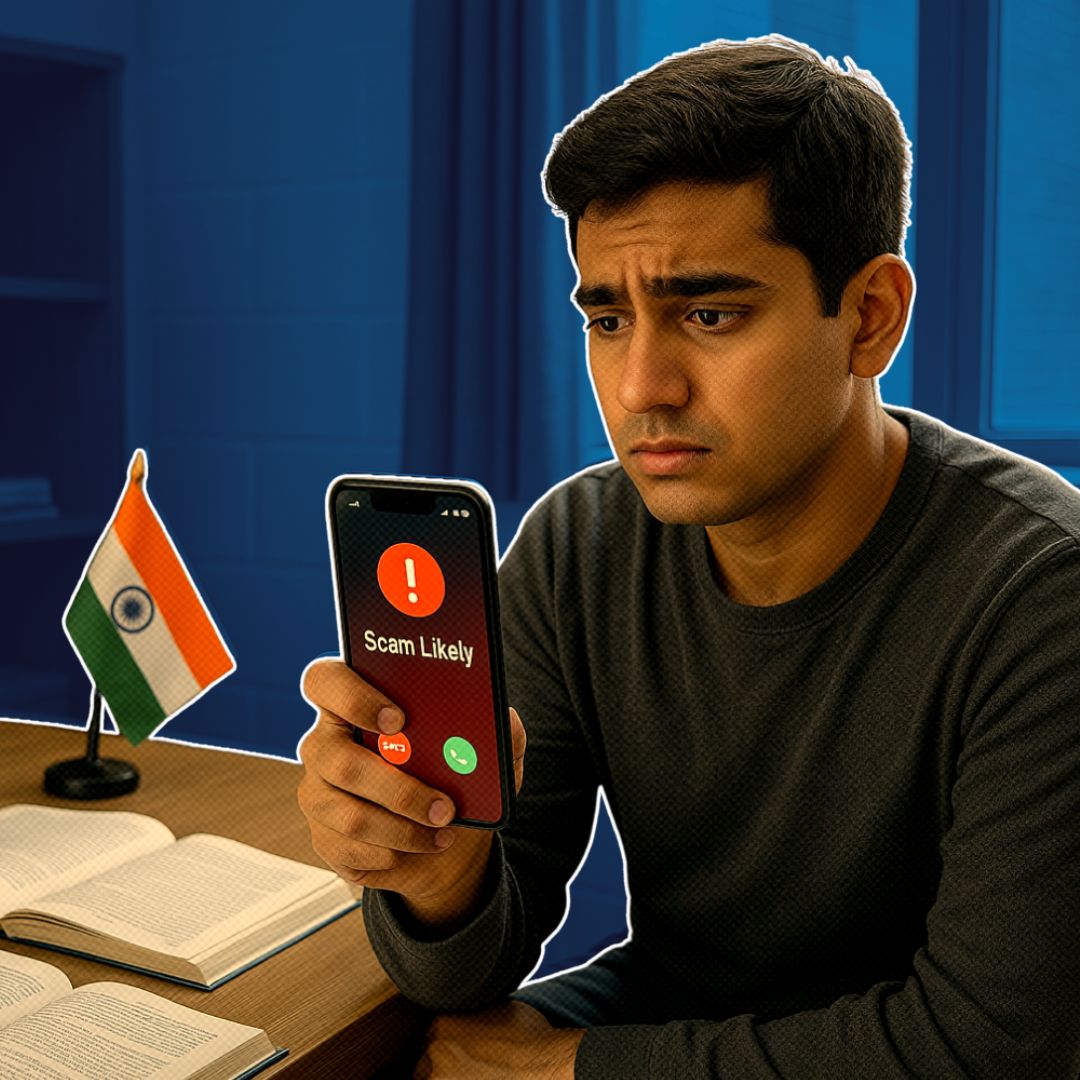A rising wave of scam calls is targeting F-1 visa holders studying in the United States, with fraudsters impersonating US immigration officials and foreign diplomats to extort money or sensitive personal information. Students primarily from India, the Middle East, and other regions have reported receiving threatening calls warning of deportation or legal consequences unless they pay fabricated fines or disclose confidential data.
The FBI, US Citizenship and Immigration Services (USCIS), and the Indian Embassy in Washington, DC, have issued urgent advisories cautioning students against responding to such calls and urging them to report suspicious activity to university authorities or law enforcement.
This alarming trend has heightened fears among international students already anxious about immigration policies and visa security.
Scammers Exploit Deportation Fears and Policy Anxiety
The scam calls typically begin with phone numbers that appear authentic, often spoofing official government agencies such as the Department of Homeland Security (DHS), USCIS, or even foreign embassies including the Indian Embassy. Students receive alarming messages claiming they have violated visa terms, possess irregularities in their immigration records, or face imminent deportation.
The callers pressure victims to pay fines, legal fees, or “processing charges” immediately, sometimes directing them to fraudulent websites designed to steal money or personal data. According to a recent FBI alert, “Criminal scammers impersonate US and foreign government officials, exploiting students’ immigration status concerns for financial gain.”
The Indian Embassy has also confirmed that fraudsters are mimicking its official phone numbers and threatening students with consequences unless they comply with payment demands. These tactics prey on the vulnerability and limited knowledge of international students about US immigration protocols.
Expert Advice: How to Stay Safe
Cybersecurity experts and university international student advisors stress the importance of remaining calm and sceptical when receiving unsolicited calls about immigration status. “No legitimate government agency will ever demand immediate payment or threaten deportation by phone,” says Dr. Priya Menon, a cybersecurity consultant.
She recommends students never share personal or financial information over the phone and to hang up if they feel pressured or threatened. The FBI advises verifying any claims by contacting the agency directly through official websites or university international offices. Many universities have set up dedicated helplines and workshops to educate students about common scams.
Students are encouraged to report suspicious calls to campus police, the local police department, or the Federal Trade Commission (FTC). The Indian Embassy’s advisory also suggests registering complaints via their official consular services portal.
Heightened Scrutiny Increases Student Vulnerability
This surge in scams coincides with a period of increased scrutiny on international students amid evolving US immigration policies and enforcement. Many students are already anxious about visa renewals, work authorizations, and the political climate, making them more susceptible to fear-based manipulation.
Scammers have expanded their reach by impersonating diplomats from countries such as the UAE, Qatar, and Saudi Arabia, further complicating the situation for students from these regions. Universities across the US have reported multiple cases, prompting international student offices to issue warnings and provide guidance on recognising and responding to such scams.
Importantly, government agencies have emphasised that legitimate officials never demand immediate payments over the phone, threaten deportation without due process, or request sensitive personal information via unsolicited calls or emails. Students are encouraged to verify any official communication through trusted university channels or official government websites.
The Logical Indian’s Perspective
The targeting of international students through these deceitful scams is a stark reminder of the challenges faced by young learners far from home, striving to build their futures in unfamiliar environments. It is imperative that educational institutions, government agencies, and community organisations come together to foster awareness, provide clear information, and offer support systems that empower students to recognise and resist such fraudulent activities.
The Logical Indian believes in nurturing empathy, solidarity, and informed dialogue to protect vulnerable populations and promote harmonious coexistence. By sharing verified knowledge and standing united, we can help international students feel safer and more confident as they pursue their academic and personal goals abroad.











